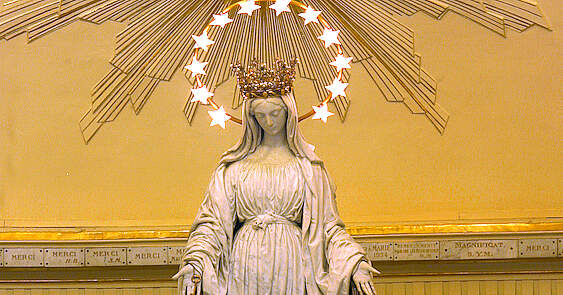
We read in the 4th chapter of the Book of Esther, that in the reign of King Assuerus, there went forth, throughout his kingdom, a decree commanding the death of all the Jews.
Then Mardochai who was one of the condemned, committed their cause to Esther, that she might intercede with the king to obtain the revocation of the sentence. At first Esther refused to take upon herself this office, fearing that it would excite the anger of the king more. But Mardochai rebuked her, and bade her remember that she must not think of saving herself alone, as the Lord had placed her upon the throne to obtain salvation for all the Jews: "Think not that thou mayest save thy life only, because thou art in the king house, more than all the Jews."
Thus said Mardochai to Queen Esther, and thus might we poor sinners say to our Queen Mary, if she were ever reluctant to intercede with God for our deliverance from the just punishment of our sins. Think not that thou mayest save thy life only, because thou art in the king s house, more than all men. Think not, oh Lady, that God has exalted thee to be queen of the world, only to secure thy own welfare; but also that thou, being so greatly elevated, mayest the more compassionate and the better relieve us miserable sinners.
Assuerus, when he saw Esther before him, affectionately inquired of her what she had come to ask of him: "What is thy petition?" Then the queen answered,"If I have found favor in thy sight, oh king, give me my people for which I request." Assuerus heard her, and immediately ordered the sentence to be revoked.
Now, if Assuerus granted to Esther, because he loved her, the salvation of the Jews, will not God graciously listen to Mary, in his boundless love for her, when she prays to him for those poor sinners who recommend themselves to her?
Saint Albert the Great, quoted in The Glories of Mary, Chapter 1, by Saint Alphonsus Liguori